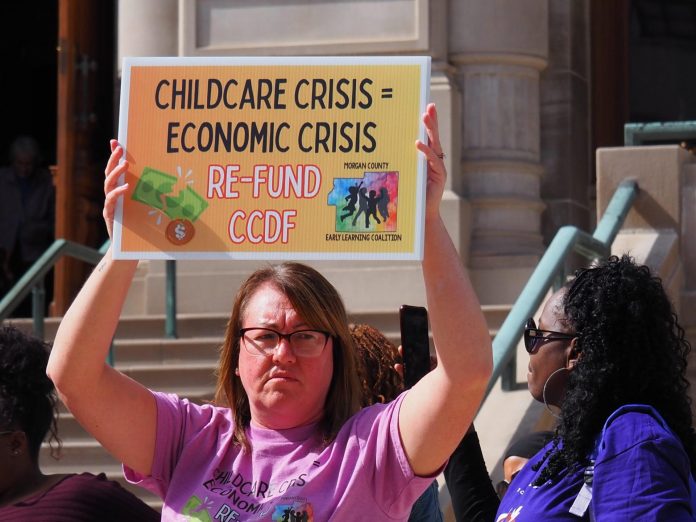by Sam Snideman, Indiana Capitol Chronicle
Indiana’s child care system serves as critical support for the state’s economy. It is also under enormous strain.
Wait lists, caps on enrollment for vulnerable children, an end to child care referral supports, and cuts to reimbursement rates further erode the shoreline on which Hoosiers’ economic house is built.
If, as the U.S. Chamber of Commerce Foundation has estimated, Indiana misses out on over $4 billion annually in economic activity due to our child care deficiencies, we are poised to lose more in the coming years.
A recent survey from Early Learning Indiana found that providers are reporting enrollment declines, and more than three-fourths of providers have seen funding cuts for Child Care and Development Fund vouchers, the state’s largest child care subsidy for low-income households.
Let’s be clear: These enrollment declines are not about reduced demand. They reflect a lack of support for families who need child care to work as well as wage growth that continues to lag inflation. Families still need care, and in many parts of our state demand exceeds supply. But affordability remains a crisis point for Indiana’s working families at all income levels.
Not investing in our state’s child care system – and in fact disinvesting in that system – comes at a cost.
Nearly a quarter of child care providers surveyed by Early Learning Indiana said they plan to cut services because of financial insecurity: from closing one classroom to shuttering their entire program.
These cuts create a perfect storm that jeopardizes care for all, not only those families who receive a voucher. Indiana’s families cannot afford these losses, and Indiana’s employers cannot afford to lose workers who will be sidelined because they can’t get child care.
Child care providers — and the families they serve — will feel the impact come October, when the state’s reimbursement rate cuts go into effect.
We acknowledge the real economic headwinds facing the state and do not envy the choices that have to be made to balance budgets or make sure public programs remain viable. But we also believe the state has an obligation and an opportunity to lead in ensuring Hoosiers have the resources they need to survive and thrive.
We need more voices at the table in setting child care policy; more ways to end waitlists for child care vouchers; and to create provider reimbursement rates that reflect the true costs of care and the genuine ability of families to pay. Families need, and deserve, these investments.
Families and employers count on child care to support economic opportunities and community stability. We need government partners to renew their commitments to the child care sector and the children it serves.





